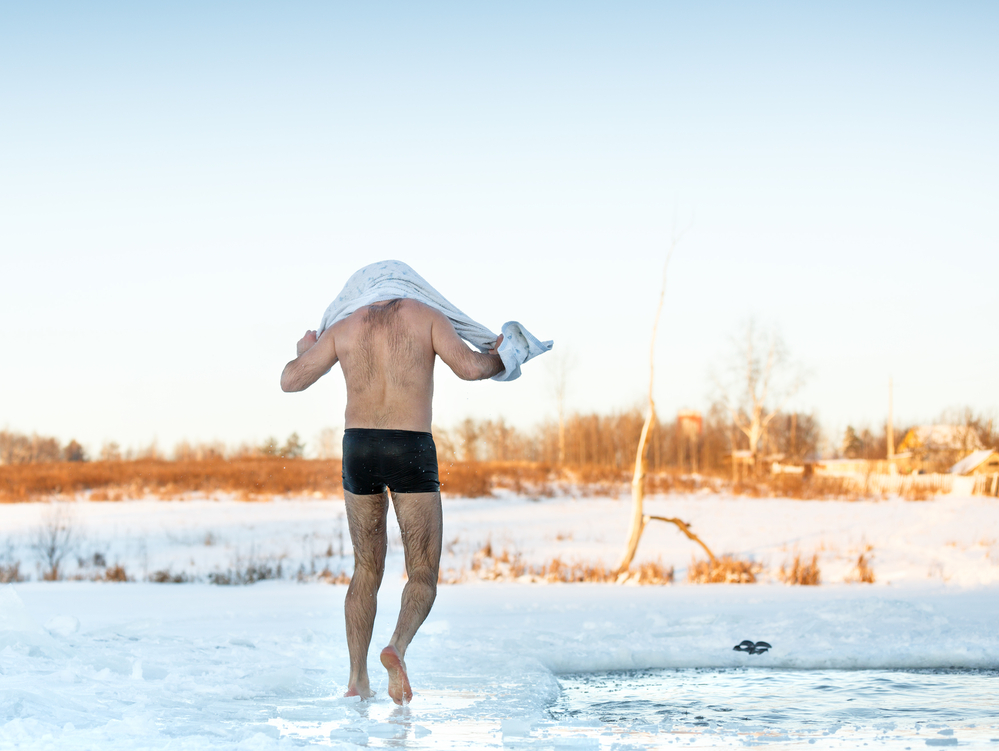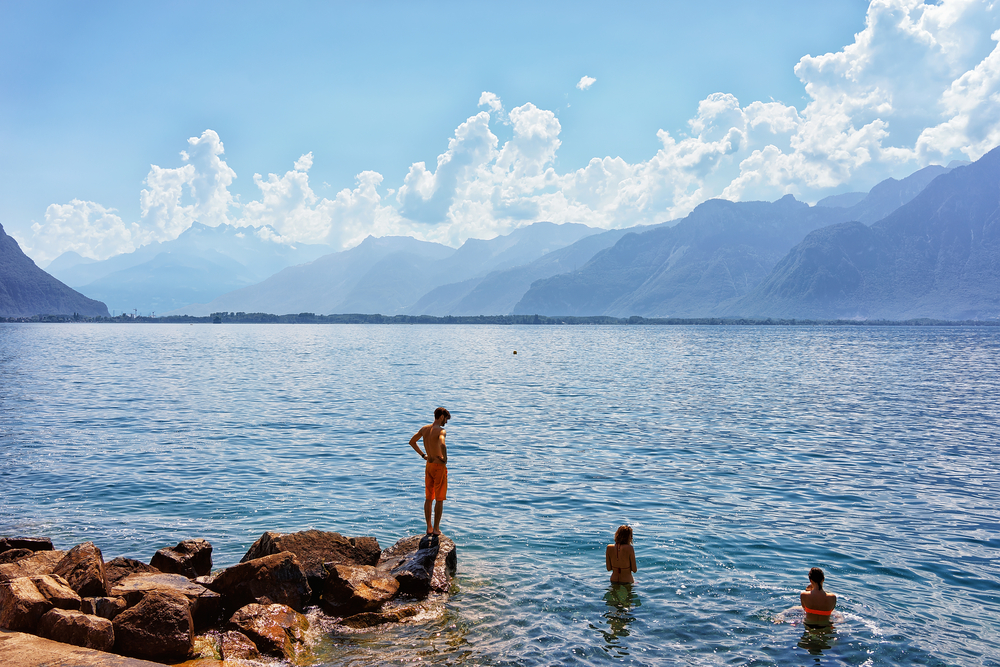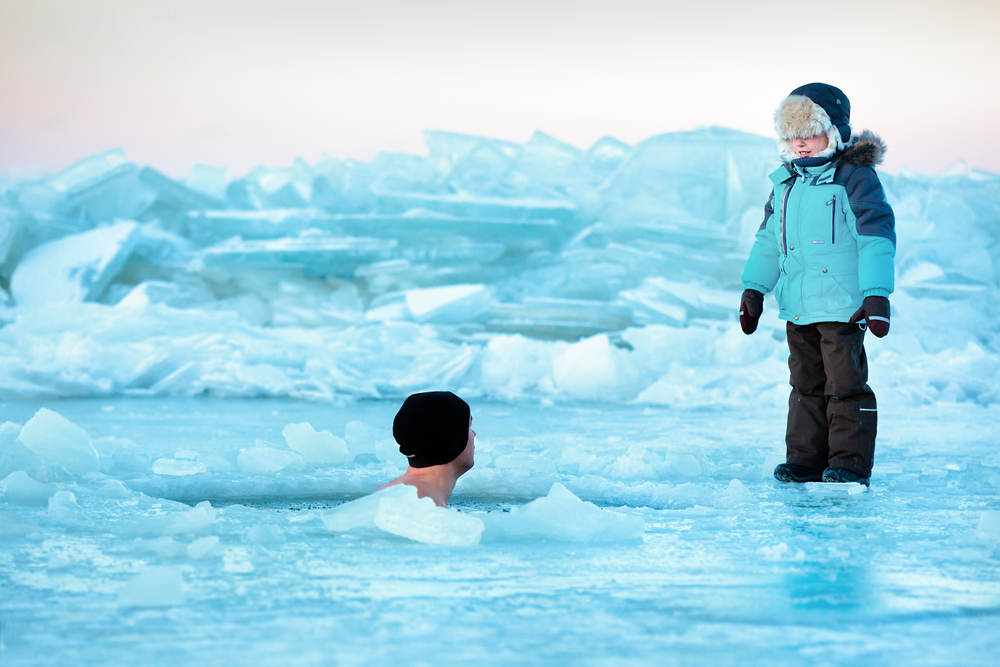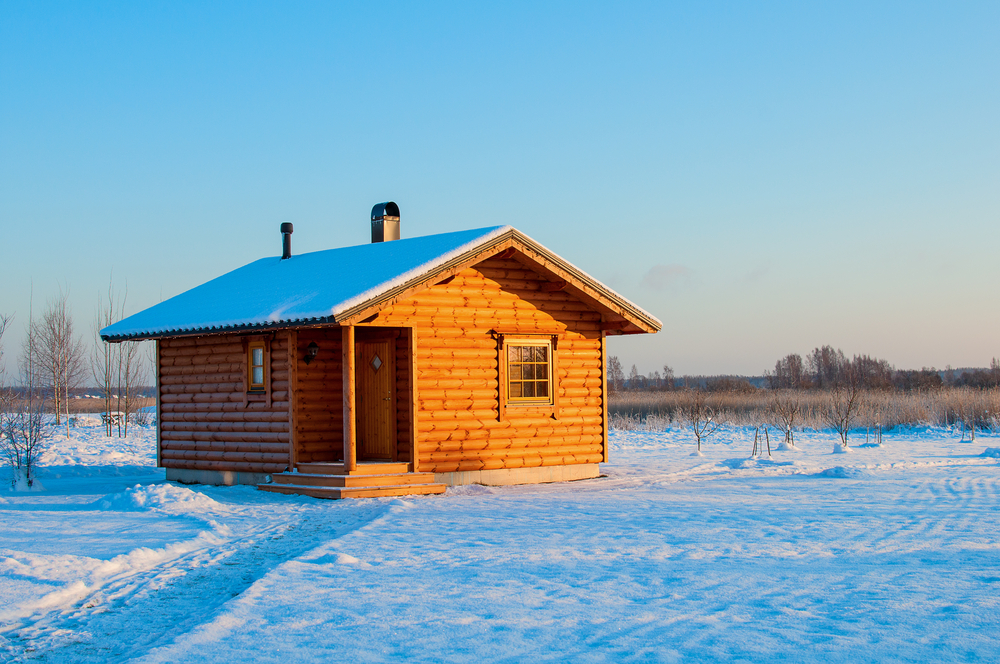Jue, Ene 6th 2022
Research shows that cold water immersion can boost immunity, energy and one’s mood. Advocates of winter swimming say it also protects them from getting sick year-round.

Advocates of winter swimming and ice baths say it naturally boosts immunity.
Snow softly began to fall on Magali Schumacher’s cropped, white hair as she unzipped her jacket to reveal a simple black swimsuit. At 7:30 in the morning, the sun was just starting to filter the darkness. She looked up at the snowflakes briefly before walking to the rocky edge of Bain des Paquis, a local swimming club on Geneva’s Lèman Lake. Magali did not wait; she simply strode in. One leg disappeared and then the other. Her waist, her shoulders, and then her head plunged beneath the dark, icy water. After a few moments, she popped up like a cork; turned back to me and waved.
“People have been swimming in this lake for centuries – no matter the weather,” Schumacher told me as she toweled off from her weekly swim. Her skin had turned bright red, and steam wafted off of her back.
“Being in the lake in the winter is invigorating. It’s good for the blood,” she said, pounding a fist to her chest for emphasis. “I like swimming this time of year more than in the summer.”
Locals crowd the beaches flanking Lèman from May through September, but even in the warmer months the glacially fed lake can be startlingly cold. And on this December morning, my weather report reads 30 degrees Fahrenheit –no telling what the water temperature may be. But Magali is not alone. In fact, I count at least 20 other people swimming in the close vicinity and many others dot the water across from us.
Sunday is the unofficial day in Geneva for a cold swim, but in other parts of Switzerland there are organizations such as the “Morning-Swimmers” in Zurich and the “Breezy See Bath Club” in Biel. It’s nothing new in a country where people have been communing with nature for centuries.

Year-round the water in the glacially-fed Lèman Lake is cold — dropping below 0 degrees C in the winter.
The ice man cometh
“It is basically free, and it can make you happy, strong, and healthy,” says Allan Cant, an advocate of cold water plunges. “Isn’t that what life is all about?”
Cant is the Head of Physical Education at the International School of Geneva, but his passion is teaching others about the benefits of cold water plunges. After hurting his lower back in an accident in 2015, Cant began exploring alternative therapies to relieve his persistent pain. He became fascinated by ice bath aficionado Wim Hof, a Dutchman who climbed Mount Everest in just a pair of shorts, among other superhuman feats.
Hof, often referred to as “Ice Man,” trains people around the world in breathing exercises and meditation that prepares the body for cold water immersion. Hof attests that his lifelong practice of ice baths is what has helped him stave off stress, anxiety and virtually all diseases. Cant personally trained under Hof and was so moved by him that he became certified as a “Wim Hof Method” instructor. Cant now leads his own workshops in Switzerland.
“If I were to teach children again, I would certainly introduce the Wim Hoff method because it’s so powerful – more powerful than any of the physical preparation I’ve done in my whole career,” Cant said. Every morning, Cant awakes early and goes through three rounds of breathing exercises before swimming in the lake or taking a cold shower. Once a week he takes an ice water bath for up to 20 minutes.
Proponents of the movement say that immersing themselves in cold water is “bracing” and “heart-pounding,” which sounds invigorating enough, but still leaves me wondering why do it?

The body releases norepinephrine, a naturally occurring stress chemical, during cold water swims which boosts energy, focus, and can fight off depression.
The cold, hard facts
“I haven’t been sick in years – it’s the best medicine I’ve ever taken,” Magali tells me when I ask her that question.
People who swim in cold water have better moods, better memory function and more energy than those who do not, according to one study. Those in the study who suffered from asthma, rheumatism, and fibromyalgia reported that their pain was relieved after incorporating cold water swimming into their routine. Another study found that cold water devotees experienced 40% fewer illnesses than those in the control group, especially respiratory ones.
Wim Hof asserts that gradual cold exposure improves circulation, reduces inflammation, and activates the production of white blood cells – a nearly bullet-proof combination when it comes to fighting off disease. Moreover, the psychological effects of his breathing exercises increase mental clarity and pump out “feel-good’ hormones. The effect is less stress, better sleep and even a slimmer waistline.
Cold water enables people to tap into their “ancient and forgotten primal instincts” to guide their automatic nervous system, Hof says. But Hof is only the newest kid on the block when it comes to this primordial tradition.

Pairing winter swimming with spending time in hot saunas pushes the body to extremes — which boosts immunity, researchers say.
An icy history
As far back as 1525, there are written records about winter swimming in Russia and other Eastern European countries. To celebrate the Epiphany (the day Jesus was purportedly baptized in the River Jordan) locals would cut a hole in frozen lakes or rivers – often in the shape of a cross. At midnight on the Epiphany, January 19, believers would submerge in the icy water three times while a prayer was said. Many still practice the tradition.
In other countries, winter swimming has long been a part of traditional festivals and local competitions. In places such as Denmark, Finland, Norway and Sweden, ice swimming has gone hand-in-hand with using hot saunas in the winter. Nordic people believe in moving from the extreme heat of a sauna to the cold water as a means to improve circulation and reduce stress. (It has been proven that stressing the body with extreme temperatures in a controlled manner can boost the immune system.)
Back in Geneva, you will find the biggest cold-water race in the world – the Coupe de Noël, which has been running annually for the last 90 years. Roughly 2,500 participants, many dressed in costumes, swim 120 meters each December when the water temperature hovers around freezing. The race ends in a warm fondue lunch and a boisterous celebration.

Don’t jump in the first time you try cold water swimming, experts say. Start with cold showers.
Dipping your toes into the deep end
As you can imagine, researching this article got me thinking about taking my own cold-water plunge (which is saying a lot for someone who grew up in southern California). I consulted with the experts on how to wade in, so to speak. Here is how to begin your own practice:
Start with your breath. Begin by practicing a breathing exercise every morning for a week or so. (This 11-minute guided session is available for free on YouTube.) This will help you both breathe through the cold and become fully committed mentally to your new practice.
Cold water showers. Try ending your shower with 30 seconds of cold water. Cant says to “turn the handle all the way” over to cold. Once you’ve practiced a few rounds of 30-second sessions, build up to one-, two- and three-minute sessions.
Use props. If you are swimming in very icy water, consider wearing neoprene water socks and neoprene gloves to prevent frostbite on your extremities.
Swim with caution. Do not jump in an icy lake or river. First splash water on your feet, arms, and shoulders to introduce your body to the temperature. Walk in slowly, but deliberately and keep moving. A good rule of thumb is to only stay in the cold water for as many minutes as there are degrees (Celsius) of the water temperature. So, if the water is 3 degrees Celsius, only swim for three minutes.
